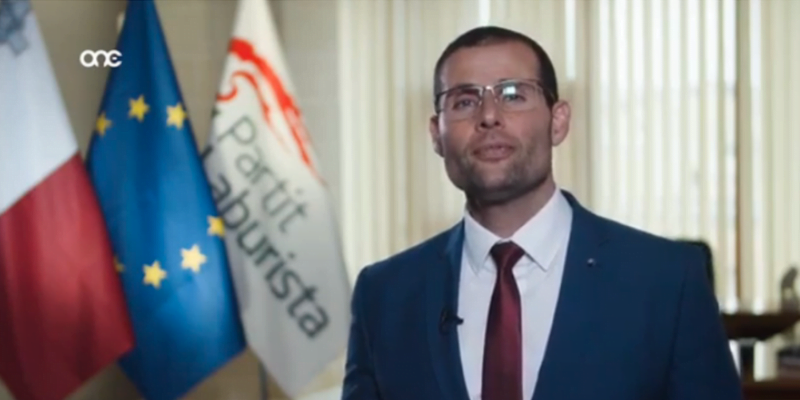In last week’s Sunday Times, an op-ed by Robert Abela described this period as a time that’s defining us, prodding us ‘to come together in our aims and actions’. Two days later, he followed that up by urging national unity on a partisan TV station with a partisan flag beside him.
That communication misfire was preceded by others. For those who read it, the op-ed was amusingly transparent in saying one thing while strenuously attempting another.
The first paragraph tells us that the coronavirus crisis is about us pulling together. There follow three paragraphs in which it’s all about him and ‘my decisions’. Soon after, Abela is saying how economic experts will ‘help me address our economic challenge’.
The article is supposedly about ‘unity’ but the real purpose is to establish Abela as the sole national leader who’s on top of the job. Fat chance. It just establishes him as insecure.
No western European leader – not Angela Merkel, not even Boris Johnson – uses self-centred words like ‘help me address the economic challenge’, as though it’s down to them alone. They would be laughed off the stage if they did.
Abela seems more concerned with impressing upon us that he’s a leader, instead of simply being one. He mistakes his intended audience for sheep in search of a Great Leader, instead of intelligent people needing pragmatic solutions and certainty.

Prime Minister Robert Abela urging ‘national unity’ on a partisan TV station with a partisan flag.
There’s more. Abela announced he will be giving up one month’s salary out of solidarity with workers bearing the brunt of the economic crisis. In Singapore and South Korea, the entire Cabinet have taken pay cuts – together. In Malta it appears to be an individual initiative, with Abela encouraging others in public service to follow suit.
To go by the news, a grand total of three ministers and one parliamentary secretary have followed the prime minister’s example – four out of 25.
The prime minister who talks about coming together in ‘our aims and actions’ cannot, apparently, even bring his Cabinet together. If Abela is taking a pay cut ‘out of solidarity’, does it mean 21 of his ministers feel no solidarity?
No, it’s another botched strategy (either ill thought out or, if all the Cabinet has actually taken a pay cut, incompetently communicated). It helps cement the perception of a government that doesn’t walk the talk.
There’s something more fundamental than communication strategy going wrong. It’s the way that breaking political scandals – dating back to Joseph Muscat’s reign but surfacing now – are being addressed.
On the same day that Abela was waxing lyrical about how this time will define us, it was reported that Konrad Mizzi signed an agreement with Steward Health Care that lets it run off with €100 million of our money any time it wants. The government’s reaction? Silence and inaction.
Then there’s the case of how the personal data of almost 340,000 Maltese citizens were (a) in the possession of a private company, which (b) somehow got it from the Labour Party and (c) was so careless that the data was not held securely.
Here is a case of several broken laws, all of a grave nature. It should warrant the company’s offices being raided by the police with interrogations to follow.
Instead, the company pooh-poohs the matter. Labour merely distances itself. If it hadn’t been for a civil society class action suit (by Repubblika and the Daphne Caruana Galizia Foundation), we’d have to be content with the Data Protection Commissioner examining the case.
These scandals warrant immediate action on political merits. If corruption ceases to matter because we have a health emergency, then we have a political emergency to contend with as well. But the scandals have an economic dimension too.
Put to one side the tens of millions going to Steward Health Care that we could use to save Maltese jobs. What will new investors, surveying the international post-crisis landscape, think about a jurisdiction that takes no stern action on such scandals?
Honest investors will conclude it’s risky. They will be aware of Malta’s reputational issues and conclude that the new prime minister, for all his talk, isn’t ready to take the necessary steps.
Before this crisis broke, Abela wanted to be defined as the leader who will repair Malta’s reputation. But his inaction on breaking scandals suggests he either doesn’t grasp their gravity or else is unable to act. No rhetoric about his tough decision making will cover up inaction.
If he goes on like this, he will not define events; he will be defined by them.












